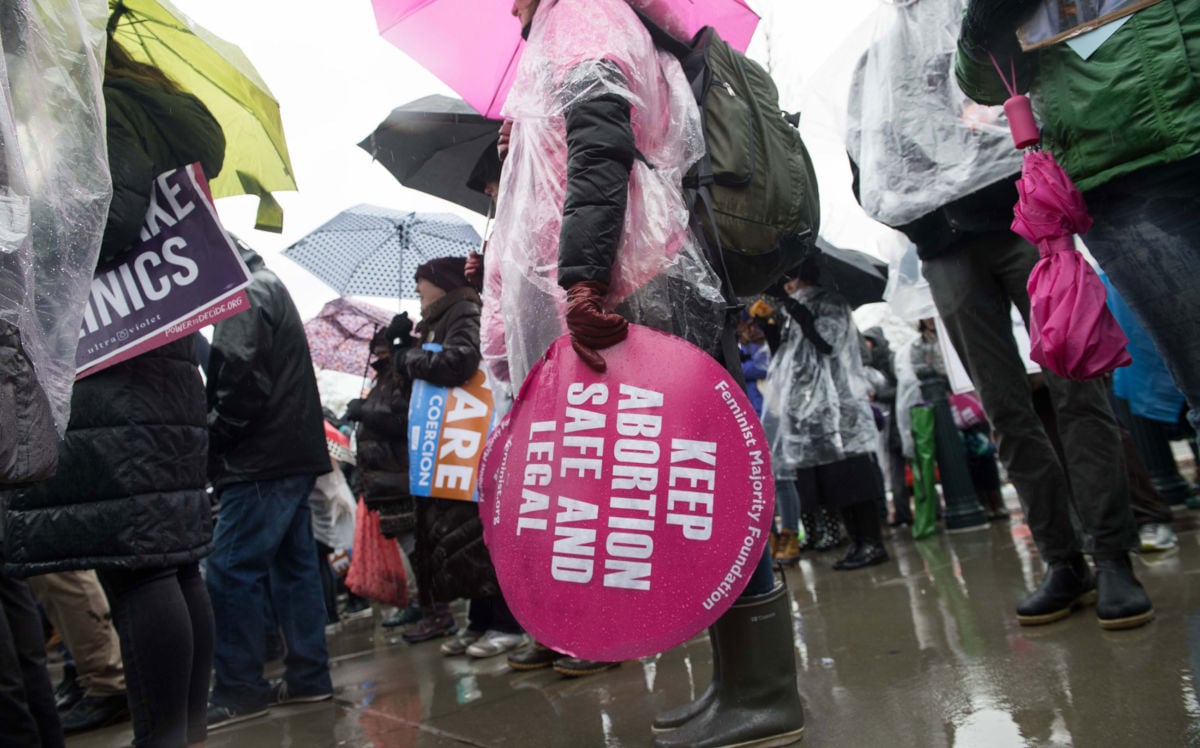Three states gave voters the chance to weigh in on abortion access this election cycle: Oregon rejected the prohibition of public funding for abortion while West Virginia doubled down on its pre-Roe anti-abortion law and Alabama approved Amendment 2, a “personhood” measure that could effectively end abortion in the state.
In Alabama, just 18.4 percent of residents voted for Amendment 2 — but with less than one-third weighing in at the polls overall (1,520,611 total) the measure passed with a solid majority. The amendment declares, “It is the public policy of this state to recognize and support the sanctity of unborn life and the rights of unborn children, most importantly the right to life in all manners and measures appropriate and lawful; and to provide that the constitution of this state does not protect the right to abortion or require the funding of abortion.”
Willie Parker, an abortion provider and board chair of Physicians for Reproductive Health, issued a statement following yesterday’s midterm results: “In my home state of Alabama, a law passed that is so vague and dangerous that it strips away the rights of pregnant people and could ban any abortion in the state. Also, in West Virginia, a ban on abortion funding passed, where the impact will be felt most on women with low incomes, who will continue to face significant barriers to abortion access. I am heartbroken for my patients and the people of Alabama and West Virginia.”
As West Virginia’s pre-Roe abortion prohibition remains on the books (it is essentially moot as long as it’s overridden by current multiple Supreme Court decisions), the very narrow vote on Amendment 1 does not immediately change the legality landscape in that state. The right to abortion remains protected unless a precedent-changing decision is issued by the Supreme Court, which now has a solid 5-4 conservative majority. What has changed is West Virginia’s commitment to funding abortion through Medicaid, which the state implemented because of a court order. According to the Guttmacher Institute, a reproductive health research organization, “the [new] measure would insert language specifying that the state’s constitution does not … require public funding of abortion.”
On the other hand, Oregon is one of 17 states, according to Guttmacher, that funds “all or most medically necessary” abortions. By a two-to-one margin, Oregonians upheld the status quo — an incredibly important vote ahead of a potential Supreme Court nullification of Roe v. Wade that could eliminate federal protections for abortion.
“I am heartened to see the voters of Oregon recognize their ballot measure for what it was: a cruel way to politicize abortion care,” Parker said in a statement following the midterm results.
It’s crucial that states like Oregon, California, Washington, Colorado and New York — states that are poised to become destinations for patients whose legislators seek to outlaw abortion — solidify as many protections as possible. While restrictions may start or end at state borders, the effects are regional in a country where 87 percent of counties are without a single abortion provider. Living in a particular state does not necessarily mean that the closest clinic is in that state.
In 2014, multiple public health studies found 20 percent of abortion patients traveled more than 40 miles each way (often for more than one trip depending on the procedure and state waiting period laws). In the middle of the country and larger states — Montana, Wyoming, North Dakota, South Dakota, Nebraska, Kansas and Texas — some patients are already traveling over 180 miles one way to see a provider. Abortion has become so inaccessible in so much of the US that any state enacting additional restrictions will necessarily generate a ripple effect, as patients are forced to compete for available appointments as far as two or three states away.
“[The] ballot measures in West Virginia and Oregon were about nothing more than the anti-abortion movement’s longstanding agenda to push abortion care out of reach,” Destiny Lopez, the co-director of All* Above All, told Truthout via email. “Women of color, low-income people and young people will most certainly bear the brunt of these cruel, unjust policies.”
The ability to determine one’s future has always been tied to an ability to control fertility and pregnancy.
“When a woman is able to make decisions about her own health care, including whether and when to have children, she has more control over her economic security,” said Lopez.
Meanwhile, advocates are working hard to preserve access to abortion, including in places where it’s all but gone. Parker is the abortion provider at neighboring Mississippi’s only abortion clinic, Jackson Women’s Health Organization. He has been an outspoken and unapologetic advocate for his patients, fighting to keep the clinic open amidst multiple personhood ballot measures (all have failed) and other attempts to eliminate abortion access in Mississippi.
“We need legislators across the country to understand that abortion is health care; health care is a right, and a right is not a right if every patient can’t afford to access it,” Parker said in the statement from Physicians for Reproductive Health. “As an ob/gyn and provider of abortion care, I know that every single one of us must be able to decide whether and when to become a parent — where we live, how much money we have or where we get our insurance should not dictate our dignity. Because we all love someone who has had or will need abortion care, I know that no matter our personal feelings about abortion care, we can all agree that no one, especially politicians, should interfere in health care decisions.”
Media that fights fascism
Truthout is funded almost entirely by readers — that’s why we can speak truth to power and cut against the mainstream narrative. But independent journalists at Truthout face mounting political repression under Trump.
We rely on your support to survive McCarthyist censorship. Please make a tax-deductible one-time or monthly donation.
